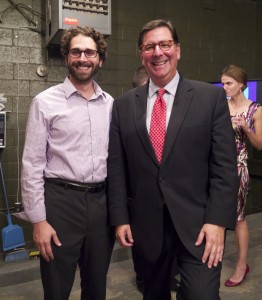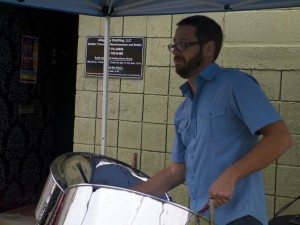Went to a great party last night at Maggie’s Farm that was also for an amazing cause. They raised 5 thousand dollar to put towards HAS. I learned about some really interesting, and involved things Pittsburgh has been doing to help in Haiti. Mayor Bill Peduto stopped by to enjoy some rum, and to chat about all the good work HAS does, and also shared some plans that are happening in the Strip District. It was the first time I had met him, he was really nice and easy to talk to. He even agreed to do a podcast with me in October!
The first link you can listen to our friend Tran, as she tells us a little bit about HAS in Pittsburgh and all over the globe.
HAS talks about the good they are doing by Marta On The Move on Mixcloud
This is the sound clip of the Mayor’s speech, tune in!
Mayor Bill Peduto visits the fundraiser for HAS at Maggi’es Farm by Marta On The Move on Mixcloud
Learned about more events from HAS here and also how you can help!
The Reality in Haiti
25Haiti has the highest rates of infant, under-five and maternal mortality in the Western Hemisphere. Infants, children, and new and expectant mothers are most vulnerable to food shortages and poor nutrition, which are a frequent, seasonal fact of life in Haiti.
Widespread poverty, overcrowding, and poor sanitation make the spread of life-threatening diseases a constant threat here, while noncommunicable diseases, such as diabetes, are on the rise. At the same time, Haiti is experiencing a dramatic increase in the incidence of traumatic injuries due to traffic accidents, an unintended consequence of post-earthquake road improvements.
Urban vs. Rural Life*
Since the catastrophic earthquake of 2010, recovery in Haiti’s capital city, Port-au-Prince, has been advancing. Most displaced families have relocated from camps, more children are attending school, and more citizens have access to necessities, like clean water. The situation, however, is drastically different for those residing in the Haitian countryside.
In general, there are significant inequalities that exist between the urban and rural populations of Haiti. Of all the countries in Latin America and the Caribbean, it is the most unequal in terms of wealth distribution. The richest 20% hold more than 64% of the total wealth, while the poorest 20% barely hold 1%. Rural communities are also much less likely to have access to clean water, energy sources and proper sanitation. While some of the rural population has received aid in obtaining clean water, many are still too far from clean sources. These people only have access to unprotected water from rivers and wells, which they use for drinking, bathing, cooking, etc., and are at the highest risk for waterborne illnesses like Cholera.
Since the year 2000, the overall extreme poverty rate has been improving. It has gone down from 31% to 24%. Although, this is solely due to improvements in cities. Poverty in rural Haiti has remained largely the same. This is particularly disconcerting, because over half of Haiti’s population lives in rural areas.








